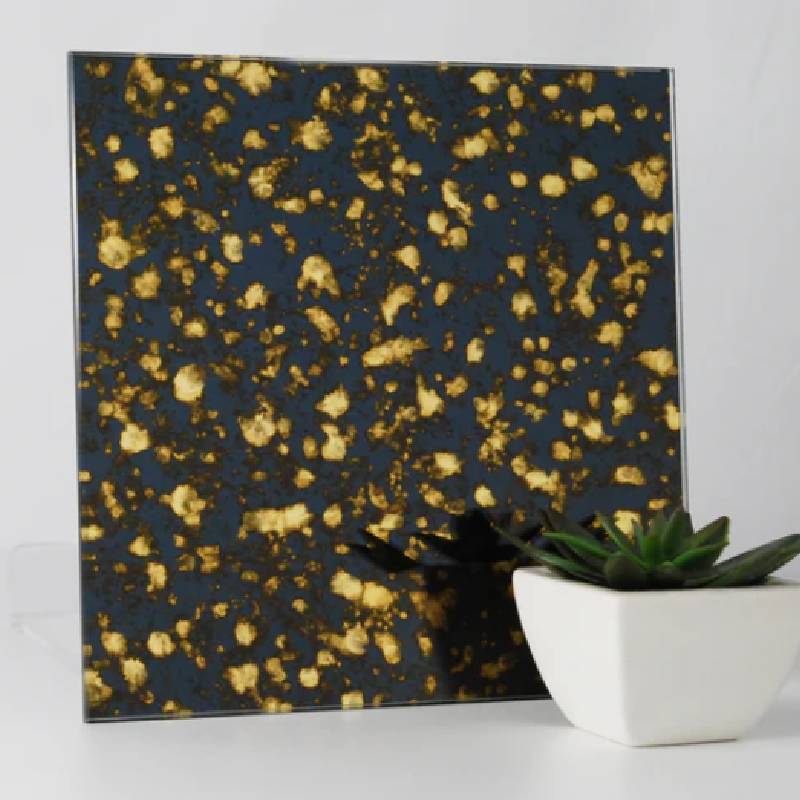Understanding Silver Mirror Materials A Reflection on Quality and Versatility
Silver mirrors, known for their exceptional clarity and brightness, have been a staple in decorative art and practical applications for centuries. The term silver mirror material generally refers to a reflective surface made primarily of silver, which is known for its impressive optical properties. This article explores the characteristics, production techniques, and diverse applications of silver mirror materials, highlighting their significance in both historical and contemporary contexts.
Characteristics of Silver Mirror Materials
Silver mirrors are renowned for their high reflectivity, often exceeding 95% in certain wavelengths of light. This remarkable property is due to silver's atomic structure, which allows it to reflect a broad spectrum of visible light with minimal distortion. As a result, silver mirrors can produce highly accurate and bright images, making them ideal for both decorative and practical uses.
In addition to their reflective qualities, silver mirrors are also valued for their durability. When appropriately coated, silver mirrors can withstand various environmental factors, including moisture and temperature changes. The traditional silver backing can be susceptible to tarnishing; however, modern techniques often involve additional protective layers that enhance longevity and maintain the mirror's pristine appearance.
Production Techniques
The production of silver mirror materials involves a meticulous process that balances artistry and technology. The most common method is the chemical deposition of silver onto a glass substrate. Initially, a thin layer of silver nitrate is applied to the glass surface. Upon exposure to a reducing agent, the silver ions are transformed into metallic silver, forming a reflective layer. This method has remained popular due to its efficiency and effectiveness.
silver mirror material
Moreover, technological advancements have introduced alternatives like vacuum deposition, where silver is vaporized and then condensed onto the glass surface under vacuum conditions. This technique allows for improved control over thickness and uniformity, resulting in higher-quality mirrors. After the silver layer is deposited, mirrors are often coated with additional materials—such as paint or lacquers—to protect against tarnishing and enhance their durability.
Applications of Silver Mirrors
Silver mirror materials serve various functions across multiple industries, solidifying their status as a versatile choice. In the realm of interior design, silver mirrors are used extensively as decorative accents, enhancing the aesthetic appeal of spaces by creating an illusion of depth and openness. The reflective properties of silver mirrors also make them popular in the fashion industry, where they are utilized in fitting rooms and boutiques to provide customers with a clear view of garments.
In scientific and medical fields, silver mirrors play a critical role. For instance, they are employed in optical instruments such as telescopes and microscopes, where precise reflection is vital for accurate observations. Moreover, in the field of laser technology, silver mirrors are integral components in laser cavities due to their high reflectance and low absorption characteristics.
Additionally, silver mirrors have found a place in cultural contests and exhibitions, where they are often used as trophies or awards, symbolizing excellence and achievement. Their reflective nature not only serves a functional purpose but also embodies the values of clarity and brilliance appreciated in various cultures around the world.
Conclusion
Silver mirror materials exemplify a merging of utility and elegance, making them indispensable in many domains. Their high reflectivity, durability, and versatility ensure that they remain relevant in both everyday and specialized applications. As technology continues to evolve, the methods of production will likely advance, leading to even more innovative uses for silver mirrors. Whether in enhancing home decor or facilitating scientific discovery, silver mirrors will continue to reflect the brilliance of human ingenuity and creativity for years to come.
 Afrikaans
Afrikaans  Albanian
Albanian  Amharic
Amharic  Arabic
Arabic  Armenian
Armenian  Azerbaijani
Azerbaijani  Basque
Basque  Belarusian
Belarusian  Bengali
Bengali  Bosnian
Bosnian  Bulgarian
Bulgarian  Catalan
Catalan  Cebuano
Cebuano  Corsican
Corsican  Croatian
Croatian  Czech
Czech  Danish
Danish  Dutch
Dutch  English
English  Esperanto
Esperanto  Estonian
Estonian  Finnish
Finnish  French
French  Frisian
Frisian  Galician
Galician  Georgian
Georgian  German
German  Greek
Greek  Gujarati
Gujarati  Haitian Creole
Haitian Creole  hausa
hausa  hawaiian
hawaiian  Hebrew
Hebrew  Hindi
Hindi  Miao
Miao  Hungarian
Hungarian  Icelandic
Icelandic  igbo
igbo  Indonesian
Indonesian  irish
irish  Italian
Italian  Japanese
Japanese  Javanese
Javanese  Kannada
Kannada  kazakh
kazakh  Khmer
Khmer  Rwandese
Rwandese  Korean
Korean  Kurdish
Kurdish  Kyrgyz
Kyrgyz  Lao
Lao  Latin
Latin  Latvian
Latvian  Lithuanian
Lithuanian  Luxembourgish
Luxembourgish  Macedonian
Macedonian  Malgashi
Malgashi  Malay
Malay  Malayalam
Malayalam  Maltese
Maltese  Maori
Maori  Marathi
Marathi  Mongolian
Mongolian  Myanmar
Myanmar  Nepali
Nepali  Norwegian
Norwegian  Norwegian
Norwegian  Occitan
Occitan  Pashto
Pashto  Persian
Persian  Polish
Polish  Portuguese
Portuguese  Punjabi
Punjabi  Romanian
Romanian  Russian
Russian  Samoan
Samoan  Scottish Gaelic
Scottish Gaelic  Serbian
Serbian  Sesotho
Sesotho  Shona
Shona  Sindhi
Sindhi  Sinhala
Sinhala  Slovak
Slovak  Slovenian
Slovenian  Somali
Somali  Spanish
Spanish  Sundanese
Sundanese  Swahili
Swahili  Swedish
Swedish  Tagalog
Tagalog  Tajik
Tajik  Tamil
Tamil  Tatar
Tatar  Telugu
Telugu  Thai
Thai  Turkish
Turkish  Turkmen
Turkmen  Ukrainian
Ukrainian  Urdu
Urdu  Uighur
Uighur  Uzbek
Uzbek  Vietnamese
Vietnamese  Welsh
Welsh  Bantu
Bantu  Yiddish
Yiddish  Yoruba
Yoruba  Zulu
Zulu 

